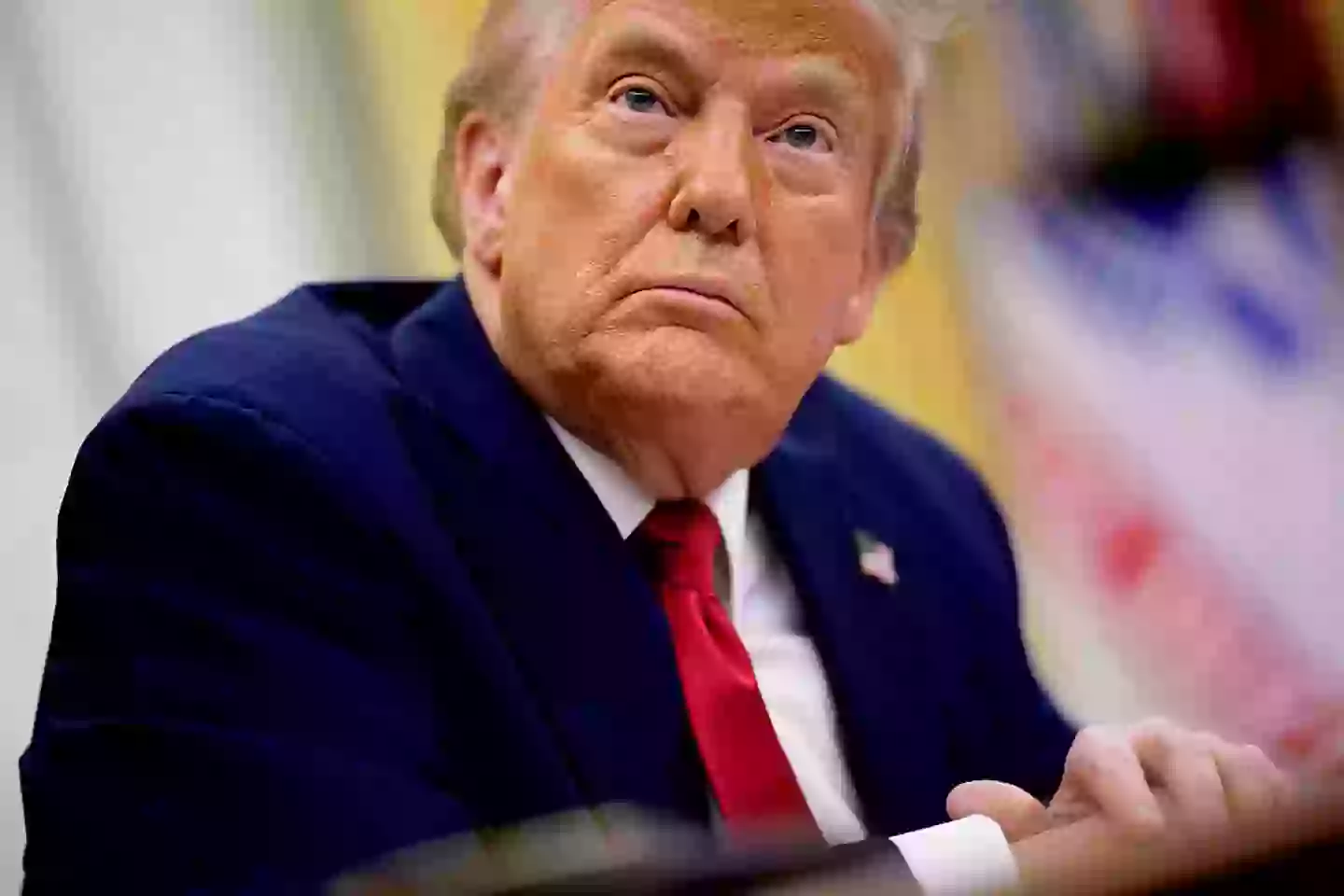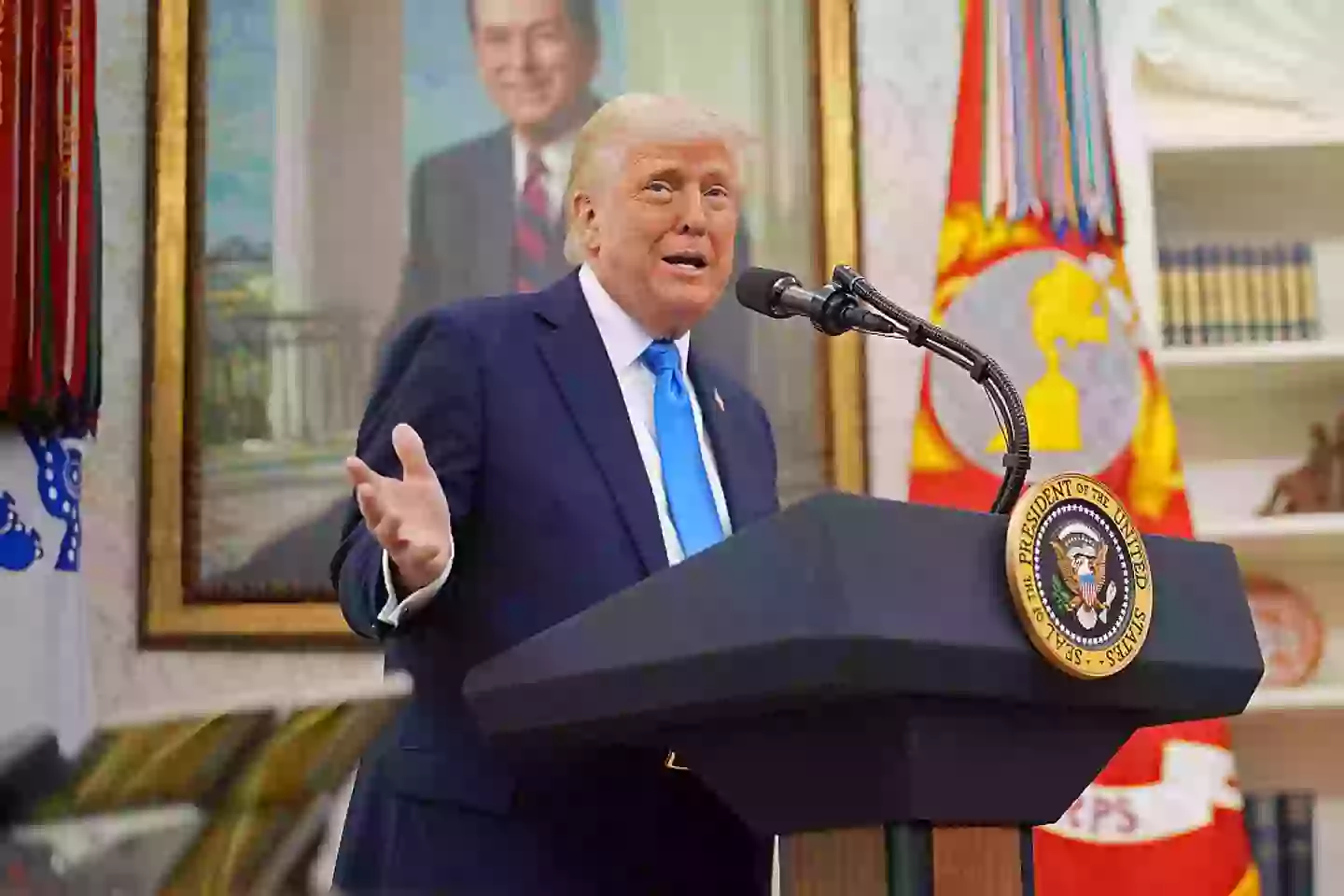
Topics: Donald Trump, Explained, Keir Starmer, Money, News, Politics, UK News, US News, World News
To make sure you never miss out on your favourite NEW stories, we're happy to send you some reminders
Click 'OK' then 'Allow' to enable notifications

Topics: Donald Trump, Explained, Keir Starmer, Money, News, Politics, UK News, US News, World News
A word we've all been hearing seemingly non-stop during United States president Donald Trump's second term is, no doubt, tariffs.
Trump has been making waves since he started his presidency on 20 January 2025, from renaming the Gulf of Mexico to his harsh stances on topics such as immigration, transgender rights, and abortion.
And as trade wars continue to escalate across the globe, it's clear that the world will be watching on to see what Trump does next during what he has dubbed 'Liberation Day' - a name which he's been using to refer to 2 April.
Advert
But, what exactly can we expect from what the 78-year-old Republican during 'Liberation Day' announcement which is set to take place later on this evening, and how exactly will it impact the UK?
OK, first things first, what actually is 'Liberation Day'?
Well, in short, it will see Trump announce his latest round of reciprocal tariffs on countries he considers to be giving the US a bad deal on trade at the White House following several threats to unleash a global trade war.
Tariffs are simply taxes placed on goods that are imported into a country.
Advert
It is the importers buying the goods who pay the tariffs meaning that, in the case of the US, American companies will be paying the increased taxes.
Ultimately, Trump states that the intent behind the tariffs is to protect US manufacturing and increase job opportunities by making foreign-made products less attractive.

However, these two main aims can take a considerable amount of time as US-based companies will first have to put in place the various infrastructure in order to produce their goods in the US.
Advert
This can result in customers paying higher costs for their goods as companies often put up their prices in order to compensate for tariffs.
Additionally, such tariffs can also have a detrimental impact on foreign countries as they make their products pricier and, therefore, harder to sell.

Now, while no details of today's plans have been made available ahead of the announcement which will take place 9pm UK time, Trump has time and time again repeated the idea of imposing so-called reciprocal tariffs.
Advert
On Sunday (30 March), he said 'all countries' could expect to be hit by tariffs.
When a reporter asked whether it was true he was planning on targeting between 10 and 15 countries, Trump hit back speaking from Air Force One: "Who told you 10-15 countries? You didn't hear it from me."
And, when pressed on how many countries he was planning to hit, he replied: "You'd start with all countries, let's see what happens."
A few days prior, Trump explained that he was open to striking up deals with countries seeking to avoid US tariffs - however, such agreements would need to be negotiated after 'Liberation Day'.
Advert
He had previously said he 'may give a lot of countries breaks, but it's reciprocal', adding: "We might be even nicer than that."
Trump’s press secretary, Karoline Leavitt, added that Trump was spending Tuesday (1 April) 'perfecting' the trade plan.
"He is with his trade and tariff team right now, perfecting it to make sure this is a perfect deal for the American people and the American worker," she said.

Downing Street has said that British Prime Minister Keir Starmer and Trump have had 'productive negotiations' towards a UK-US 'economic prosperity deal'.
According to a statement released on Sunday (30 March), the pair discussed a possible deal over the weekend and both agreed that negotiations will 'continue at pace'.
Yesterday, Starmer told Sky News that the UK was 'working hard on an economic deal' with the US and said 'rapid progress' has been made.
However, he did admit: "Look, the likelihood is there will be tariffs. Nobody welcomes that, nobody wants a trade war.
"But I have to act in the national interest and that means all options have to remain on the table."
Starmer added: "We are discussing economic deals. We're well advanced.
"These would normally take months or years, and in a matter of weeks, we've got well advanced in those discussions, so I think that a calm approach, a collected approach, not a knee-jerk approach, is what's needed in the best interests of our country."